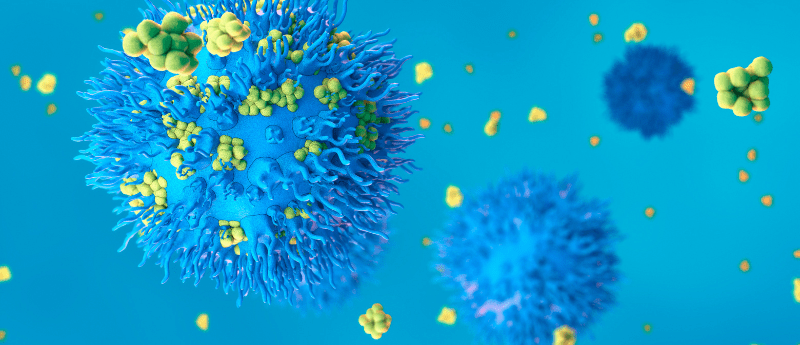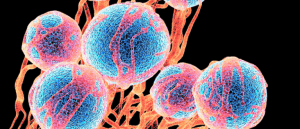Invariant natural killer T-cell therapy: a promising treatment for acute respiratory distress syndrome

AgenT-797, an off-the-shelf allogeneic therapeutic that utilizes invariant natural killer T-cells, has seen promising results in patients with serious respiratory illness.
Researchers at Anglia Ruskin University (Cambridge, UK) and MiNK Therapeutics (NY, USA) have investigated the use of a novel natural killer T-cell therapy in patients with acute respiratory distress syndrome (ARDS) following SARS-Cov-2 infection. The Phase I/II trial saw positive clinical outcomes for patients who received the therapy.
MiNK Therapeutics’ agenT-797 contains allogeneic invariant natural killer T (iNKT) cells isolated from healthy donors. iNKT cells are a T-cell type found at fairly low frequencies in peripheral blood. They have the somewhat unique ability to rescue exhausted T cells and elicit an anti-inflammatory immune response. These characteristics confer a strong potential for use in a diverse range of clinical settings, including to promote anti-pathogenic immunity.
The research group trialed agenT-797 in 20 mechanically ventilated patients who were suffering from ARDS after COVID-19 infection. ARDS is characterized by severe lung inflammation and patients are often susceptible to serious secondary infections. The patients each received a single infusion of agent-797 at one of three trialed doses.
The therapeutic was deemed safe and tolerable. Any adverse events seen in patients post-infusion were seemingly indistinguishable from those resulting from COVID-19 infection. Furthermore, the therapeutic conferred excellent survival outcomes, with 70% of study patients surviving after 40 days compared with 10% of a control group at the same institution. Patients receiving the highest dose also experienced significantly fewer secondary infections, including an 80% reduction in instances of pneumonia, compared with patients who received a lower dose of iNKT cells.
“These published findings reinforce the unique power and potential of iNKT cells to mitigate severe acute respiratory distress,” concluded Marc van Dijk, Chief Scientific Officer at MiNK and co-author of the study.
This study demonstrates the potential for off-the-shelf iNKT cell therapies, like agent-797, for the treatment of viral infections. The authors hope that the product will be investigated in further trials for a range of other severe infections.
You may also like:
How did we overlook CD4+ T-cells?
Recent research overturns our understanding of CD4+ cells’ anti-tumor activity, showing a greater range of mechanisms than previously thought.
